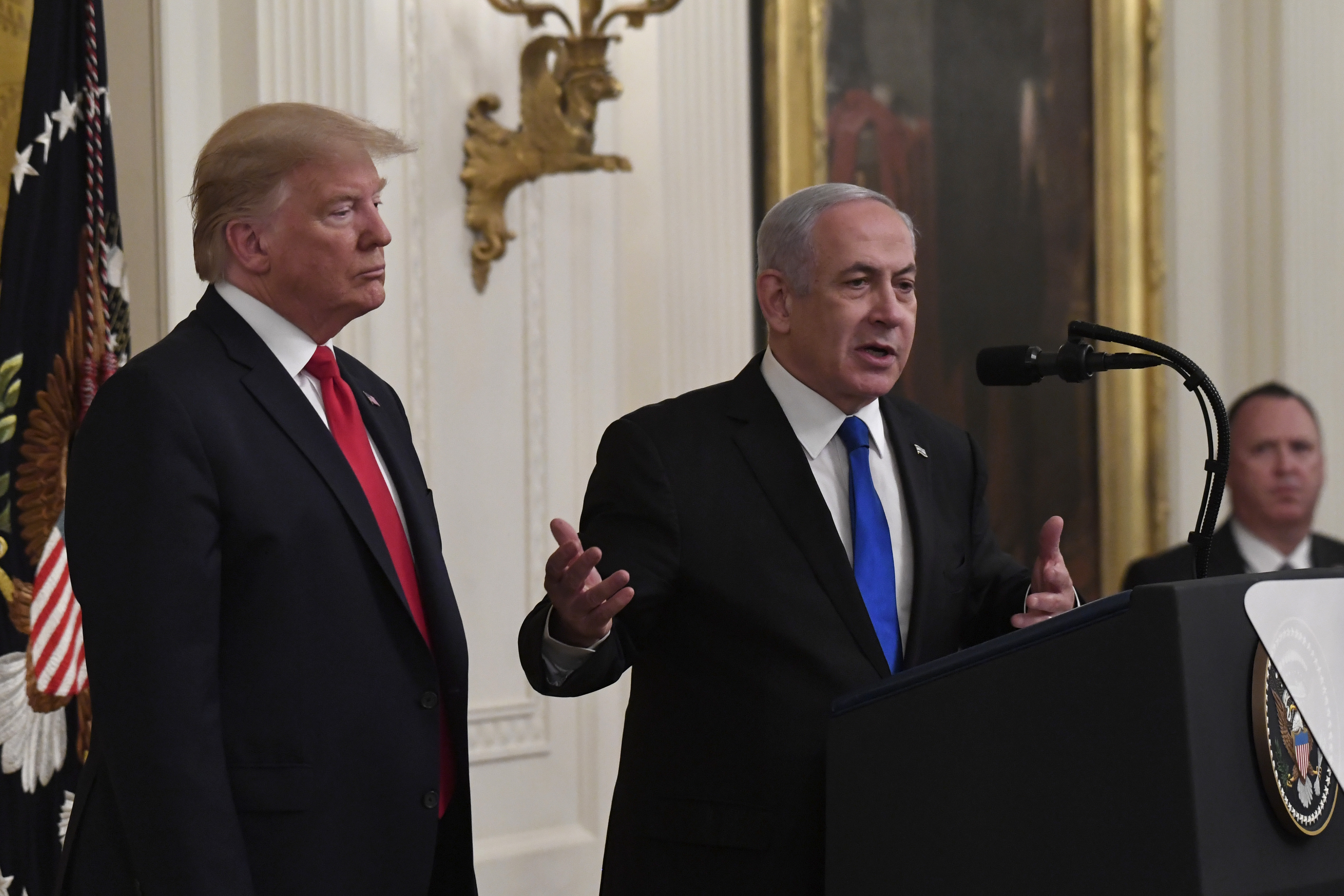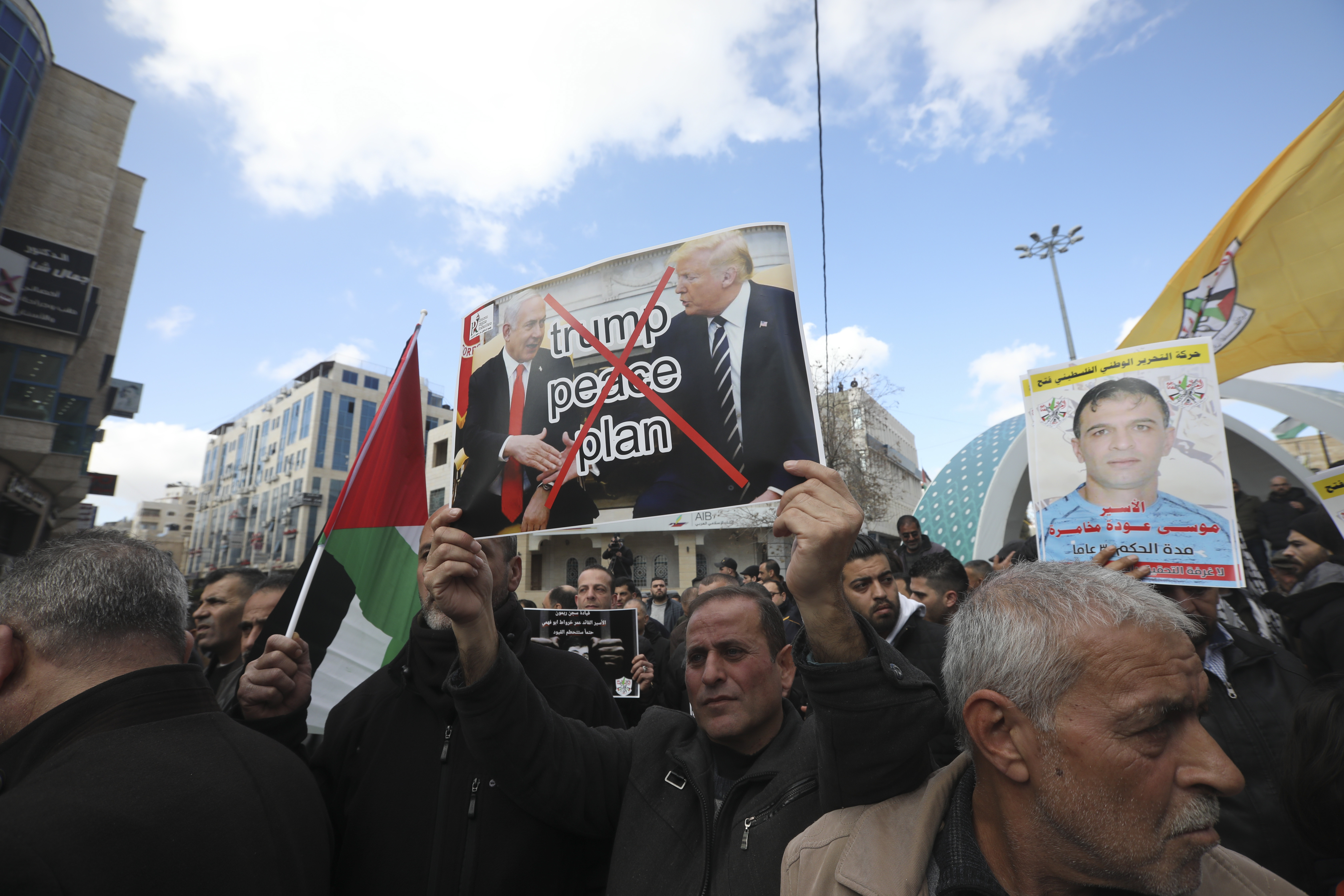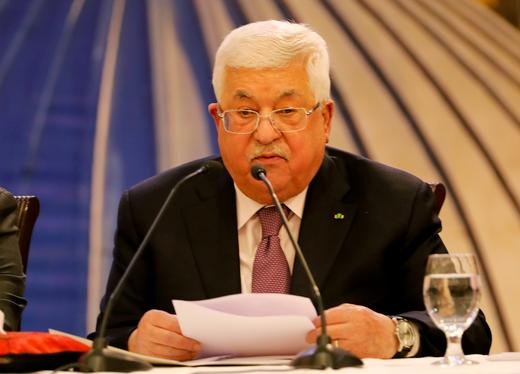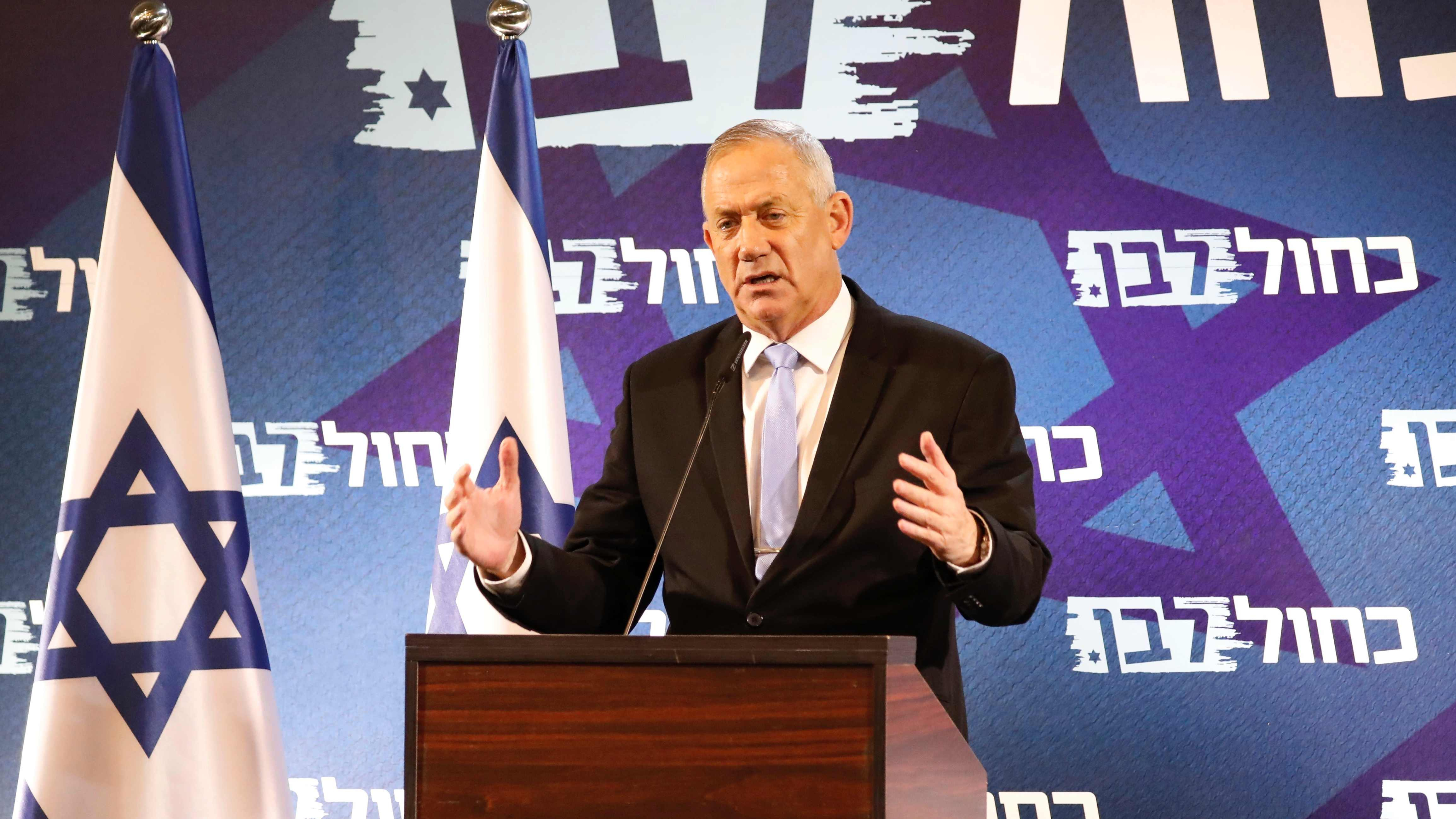U.S. President Donald Trump released his long-awaited "deal of the century" on Tuesday, a peace plan that purportedly aims to end the Israeli-Palestinian conflict.
Some of the proposals are radical departures from long-standing U.S. positions in the three decades of the Washington-led peace process. The deal no longer insists that Israel returns to its 1967 border as mandated by the United Nations Security Council Resolution 242. The Palestinians as a whole would have to recognize Israel as a Jewish state and accept limited Palestinian sovereignty.
What's included in the peace deal?
One of the most controversial points in the deal is the proposal of Israeli sovereignty over certain areas of the occupied West Bank, including Israeli settlements, and the Jordan Valley.
While past U.S. administrations have urged Israel to halt settlement construction, Trump's peace plan states that Israelis who live in areas not contiguous with Israel should remain if they want to, essentially recognizing that Israeli settlements are a reality. In return, Israel is asked to have a four-year freeze over expanding settlements in the West Bank.

Israeli Prime Minister Benjamin Netanyahu (R) speaks during an event in which the peace plan is announced in the East Room of the White House in Washington, U.S., January 28, 2020. /AP Photo
Israeli Prime Minister Benjamin Netanyahu (R) speaks during an event in which the peace plan is announced in the East Room of the White House in Washington, U.S., January 28, 2020. /AP Photo
The fate of Jerusalem, one of the central roadblocks to peace processes in the past, is ruled to stay entirely in the hands of Israel. The Trump plan envisions Jerusalem as the capital of Israel, while that of Palestine would be in eastern Jerusalem.
"Trump's so-called peace plan delivers pretty much everything that Israel could ask for: recognition of a unified Jerusalem as Israel's capital; incorporation of illegal settlements as part of Israeli territory," said Shaun Riordan, director of the Chair of Diplomacy and Cyberspace at the European Institute for International Studies, in an interview with CGTN.
"No previous U.S. administration has ever proposed a plan so openly favorable to Israel," he noted.
How would the Arab world respond?
The deal also proposes a demilitarized Palestinian state – something that Netanyahu supported in 2009 but on which he later backtracked. Under the deal, Israel is endowed with the overwhelming security responsibility over the territory, while Palestine must vow to renounce all forms of "terrorism."
Hamas, which controls the Gaza Strip and is branded as a terrorist group by the U.S., has rejected Trump's plan, especially the proposal to disarm Gaza. "It is delusional," Hamas spokesman Hazem Qasem wrote in a tweet.

Palestinians protest the peace plan announced by U.S. President Donald Trump, in Hebron, West Bank, January 30, 2020. /AP Photo
Palestinians protest the peace plan announced by U.S. President Donald Trump, in Hebron, West Bank, January 30, 2020. /AP Photo
Palestinian leaders currently have no communication channels with both the White House and the State Department and were not present for the announcement of the plan.
"All Palestinian factions reject the plan," said Meir Litvak, chair of the Department of Middle Eastern and African History at Tel Aviv University, in an interview with CGTN. "Fatah may use it to reach a reconciliation with Hamas, but the gaps between them are very wide, and neither of them trusts the other."
Despite regular off-the-radar cooperation, occasional olive branches, and shared perception of Iran as the regional enemy between some Gulf states and Israel, the prospects for Saudi Arabia and the United Arab Emirates embracing Trump's proposal are slim.

Mahmoud Abbas delivers a speech following Washington's announcement of the peace plan in Ramallah in the Israeli-occupied West Bank, January 28, 2020. /Reuters Photo
Mahmoud Abbas delivers a speech following Washington's announcement of the peace plan in Ramallah in the Israeli-occupied West Bank, January 28, 2020. /Reuters Photo
Litvak told CGTN he doesn't think the two Gulf states could have given their tacit approval to the deal, adding that "they'll wait for the official Palestinian reaction in order to make a public statement." He also doubted that "Saudi Arabia will accept any plan that keeps al-Aqsa Mosque under Israeli control, which is what Trump says."
Yet some form of support from the Arab world could benefit Israel. Trapped among countries with which relations are not exactly friendly, Israel needs certain tangible guarantees that could alleviate its citizens' security concerns, chief among them is the fear of attacks from foreign soils.
So far all the Arab countries, with Egypt and Jordan being the only exceptions, either technically remain at war with Israel or do not recognize it as a state.
Deal's timing: An eye for Israeli election?
The timing of the deal seems ideal. Netanyahu is facing yet another highly contested election in March amid swirling corruption charges.
"The deal has been in the making for a long time, but the announcement of the deal has been delayed because Trump wants to make it an electoral boost for Netanyahu," said Wang Jin, associate researcher at the China Institute of Contemporary International Relations.
"Trump knows the Palestinians would not accept it because they made it clear that he lost his credibility as a mediator when he moved the U.S. embassy to Jerusalem (from Tel Aviv)," she added.

Benny Gantz, Blue and White party leader, speaks to his party members in Tel Aviv, Israel, December 12, 2019. /AP Photo
Benny Gantz, Blue and White party leader, speaks to his party members in Tel Aviv, Israel, December 12, 2019. /AP Photo
Netanyahu's rival Benny Gantz, who does not differ much from the prime minister on the Palestinian issue, regards the deal as a potential good plan to reach a solution.
Seen by Netanyahu's party as a move to take advantage of the initiative, the Blue and White Party leader has also announced his intention to bring forward the Trump proposal in the Knesset for a vote next week, following Netanyahu's announcement that a vote would be brought to the cabinet on Sunday.
The Israeli left meanwhile opposes the plan because "they think it totally ignores the Palestinians and nothing can be done without Palestinians' consent and cooperation," Litvak said. But their rejection will not mean much due to their poor electoral performance.
Since the combined seats of both Netanyahu's Likud and the Blue and White already surpass the majority in the Knesset, the passage of the deal will almost come as a certainty. But the legal force of this outcome remains unclear as both the government and the Knesset exist on a transitional basis.
If Palestinians reject the deal, it would be "a continuation of the status quo and risk of unilateral Israeli annexations of parts of the West Bank," Litvak noted.
"In the long run, this status quo will reinforce the Palestinian demand for one state in which all Palestinians will be given the right to vote and that will mean the end of the Jewish dream of a state for the Jewish people."